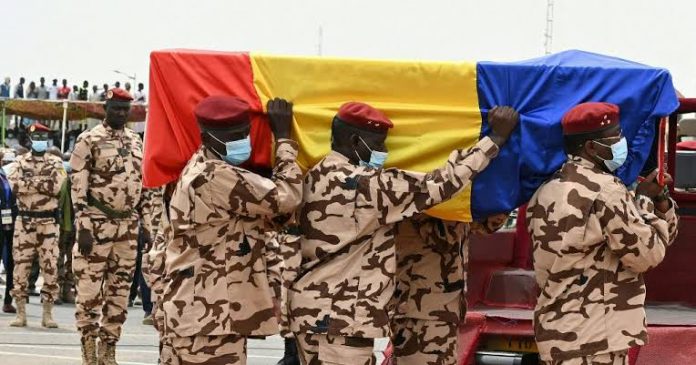More than 400 rebels in Chad were said to have been handed life sentences on Tuesday following the death of former ruler Idriss Deby Itno, who was killed in 2021.
After a mass trial, they were sentenced for “acts of terrorism, mercenarism, recruitment of child soldiers and assaulting the head of state,” Mahamat El-Hadj Abba Nana, prosecutor for the capital N’Djamena revealed.
He did not give a detailed figure for those jailed, saying only that “more than 400 were sentenced” to life, while 24 other defendants were acquitted.
The trial opened last month behind closed doors at Klessoum prison, 20 kilometres (12 miles) southeast of the capital.
In early 2021, the country’s main rebel group, the Front for Change and Concord in Chad (FACT), launched an offensive on the north of the country from bases in Libya.
On April 20, the army announced that Marshal Deby, Chad’s iron-fisted ruler for the previous three decades, had died from wounds sustained in the fighting.
Deby died just after being declared winner of a presidential election that gave him his sixth term.
His death was announced just a day after he had been declared victor of a presidential election that gave him a sixth term in office.
He was immediately succeeded by one of his sons, General Mahamat Idriss Deby Itno, who took the helm at the head of a 15-member military junta.
Several defendants were also ordered to pay damages of more than $32 million to the state and $1.6 million to the ex-president’s family, said FACT lawyer Francis Lokoulde, who suggested there would be an appeal.
Mahamat Idriss Deby Itno had promised to hold free elections within 18 months, but that deadline was extended for another two years.
Protests last October to mark the initially promised end to military rule met with a deadly crackdown.
A total of 262 people were then handed terms of between two and three years after a trial in the notorious Koro Toro prison, isolated in the desert 600 kilometres from N’Djamena.
The remote location and proceedings was condemned by international human rights groups.











